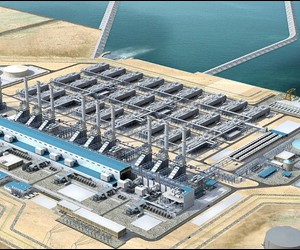Federal Water Tap, October 31: Open Government and Flood Money
That Record Does (Not) Exist
This item is not explicitly about water, but it does touch on a basic tool for keeping the government honest. The Freedom of Information Act (FOIA, for short) requires federal agencies to provide records at the public’s request, with certain exemptions for things like classified documents. The Department of Justice, however, is considering a rule that would allow agencies to respond to a FOIA request by saying that the records do not exist—even when they do.
Advocates for open government, according to ProPublica, say that this allows the government to lie to its citizens. Moreover, people seeking such records, if they are led to believe the records don’t exist, might not consider suing the government for their release, often a last-resort method for gaining access.
Flood Money
The Army Corps of Engineers says it needs $1 billion repair levees damaged this year by floods in the lower Mississippi and Missouri River basins, McClatchy reports. Without it, levees are still being rebuilt—just at a lower height.
The Corps is making stop-gap repairs to the Birds Point levee in Missouri, which was blown up this spring to relieve pressure on the Mississippi River. The levee is being rebuilt to an elevation of 55 feet, but it will not be raised to its pre-2011 elevation of 62.5 feet until Congress or the state legislature approves funding. During this year’s flood, the Mississippi River crested at Birds Point at 61 feet, meaning the new levee will not be able to hold back an equivalent flood.
You can look up information about most of the levees in the U.S. using the National Levee Database.
South Florida Shuffle
A federal task force, spurred by an Army Corps of Engineers study, will make changes to the planning process for the Everglades restoration, cutting the lead time for the project’s next phase from six years to 18 months, McClatchy reports. And on November 3, a Congressional subcommittee will hold a hearing to discuss how a proposed land acquisition by the U.S. Fish and Wildlife Service contributes to the Everglades restoration.
Nuclear Treatment
A new water treatment plant began operating at the Department of Energy-owned Hanford nuclear reservation in Washington state. According to the Tri-City Herald, the plant will suck up 800 gallons of toxic groundwater per minute and purify the water to state and federal standards before re-injecting it in the aquifer. The goal is to rid the site of chromium, a legacy pollutant from a history of plutonium processing.
Keystone XL Pipeline
Three environmental groups have sued the U.S. government over what they claim are discrepancies in the environmental reviews of a proposed 1,700 mile pipeline from the Canadian tar sands to refineries in Texas. The lawsuit, according to Reuters, challenges contradictory statements about the likelihood of oil spills from the State Department’s preliminary and final environmental reviews.
The pipeline is also being contested politically. Nebraska’s governor said he would convene a special session of the state legislature this week to discuss the project. The legislature could attempt to establish the legal authority to control the pipeline’s route through the state. The proposed route bisects the Ogallala aquifer, a key water source.
Pests
A coalition of federal agencies trying to protect water bodies from invasive species will hold a national meeting November 2-3 in Washington, D.C. The agenda for the Aquatic Nuisance Species Task Force, chaired by the U.S. Fish and Wildlife Service and the National Oceanic and Atmospheric Administration, includes information sessions on Asian carp in the Great Lakes, zebra mussels in a Texas lake, the commercial harvesting of invasive species, as well as proposed rules on ballast water from the Coast Guard and the Environmental Protection Agency. The task force will also recommend forming a working group to study how to manage invasive species as climate change shifts their habitats.
Federal Water Tap is a weekly digest spotting trends in U.S. government water policy. To get more water news, follow Circle of Blue on Twitter and sign up for our newsletter.
Brett writes about agriculture, energy, infrastructure, and the politics and economics of water in the United States. He also writes the Federal Water Tap, Circle of Blue’s weekly digest of U.S. government water news. He is the winner of two Society of Environmental Journalists reporting awards, one of the top honors in American environmental journalism: first place for explanatory reporting for a series on septic system pollution in the United States(2016) and third place for beat reporting in a small market (2014). He received the Sierra Club’s Distinguished Service Award in 2018. Brett lives in Seattle, where he hikes the mountains and bakes pies. Contact Brett Walton





Leave a Reply
Want to join the discussion?Feel free to contribute!